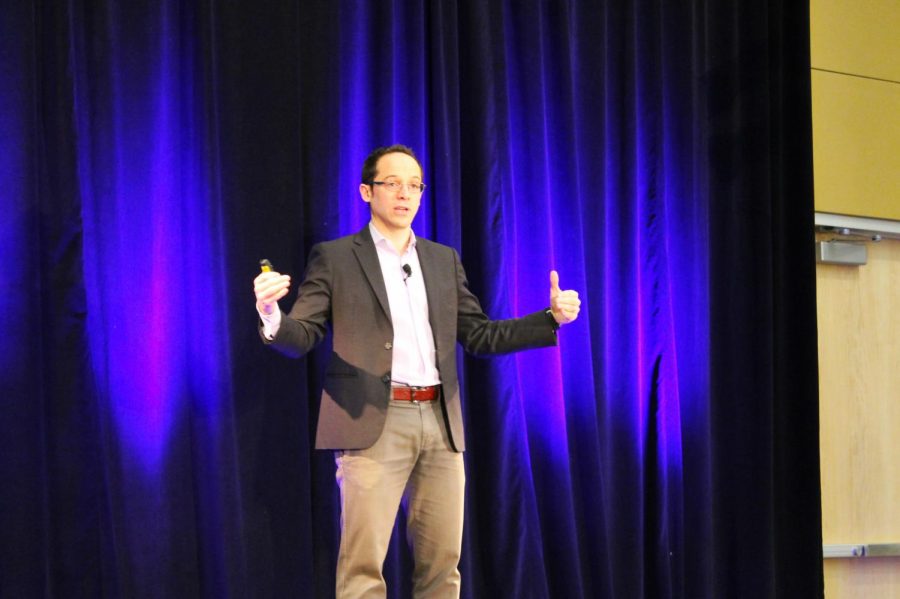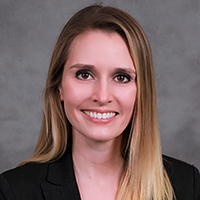Reporter speaks on sports biology at Sinai Forum
David Epstein speaks about biology and psychology and how they relate to athletic performance at the Sinai Forum on Dec. 3.
David Epstein, author of “The Sports Gene,” explained how athleticism can result from exploring a person’s biological potential at the Sinai Forum on Dec. 3.
Epstein, a former senior writer at Sports Illustrated and now and investigative reporter at ProPublica, argued that determined practice does not lead to sports greatness.
Epstein said it is important for athletes to take advantage of their physical abilities and to anticipate their opponent’s next move. In psychology the concept is called chunking, where an individual puts cues together to know what is coming next.
For example, Muhammed Ali took only 150 milliseconds from when his opponent started to punch to when he returned a jab, Epstein said.
“Turns out it was software, not hardware – anticipatory skill,” he said.
This technique applies to soccer and baseball. Cristiano Ronaldo showed he could return a soccer ball in the dark as long as the lights were on for the brief moment when he could see the body movements of the other kicker. On the other hand, Barry Bonds could not hit a baseball pitcher’s ball going only 60 mph because he was used to anticipating ball going closer to 100 mph.
“That advice to keep your eye on the ball is nonsense. You can’t do it,” Epstein said. “They unconsciously take all those signals, as soon as the ball is released.”
Epstein said that when he ran track and field he beat an athlete who practiced less than he did. He later learned that he has more Type 2 muscle fibers, so less practice is actually better for him.
Epstein said no one has the same response to the same training, and it is important to know what is right for your own genome. Elite athletes typically spend less time in practice.
He said that China has built the greatest Olympic team for repeated success in the diving program. They start with general training, and this program does not encourage athletes to specialize in diving until they know it is good for their bodies, Epstein said.
“They found something that works for their physiological sorting,” Epstein said. “They want to develop them broadly as athletes first.”
Epstein said that some people are better at endurance because they have more red blood cells to carry oxygen. He also said that the gene editing technique CRISPR-Cas9 has the potential to exacerbate these biological differences and it may be used for cheating. Editing one gene can cause a significant change.
“We should be having the conversation about gene editing yesterday,” he said.
James Schooley, SGA’s Westville CHESS senator, asked for Epstein to discuss CRISPR more in the Q&A afterward. Schooley said this was one of the most nuanced speeches he had heard.
“There has always been a correlation between cuttingedge technology and people trying to cheat,” Schooley said about CRISPR. “It’s something that needs to be regulated.”



